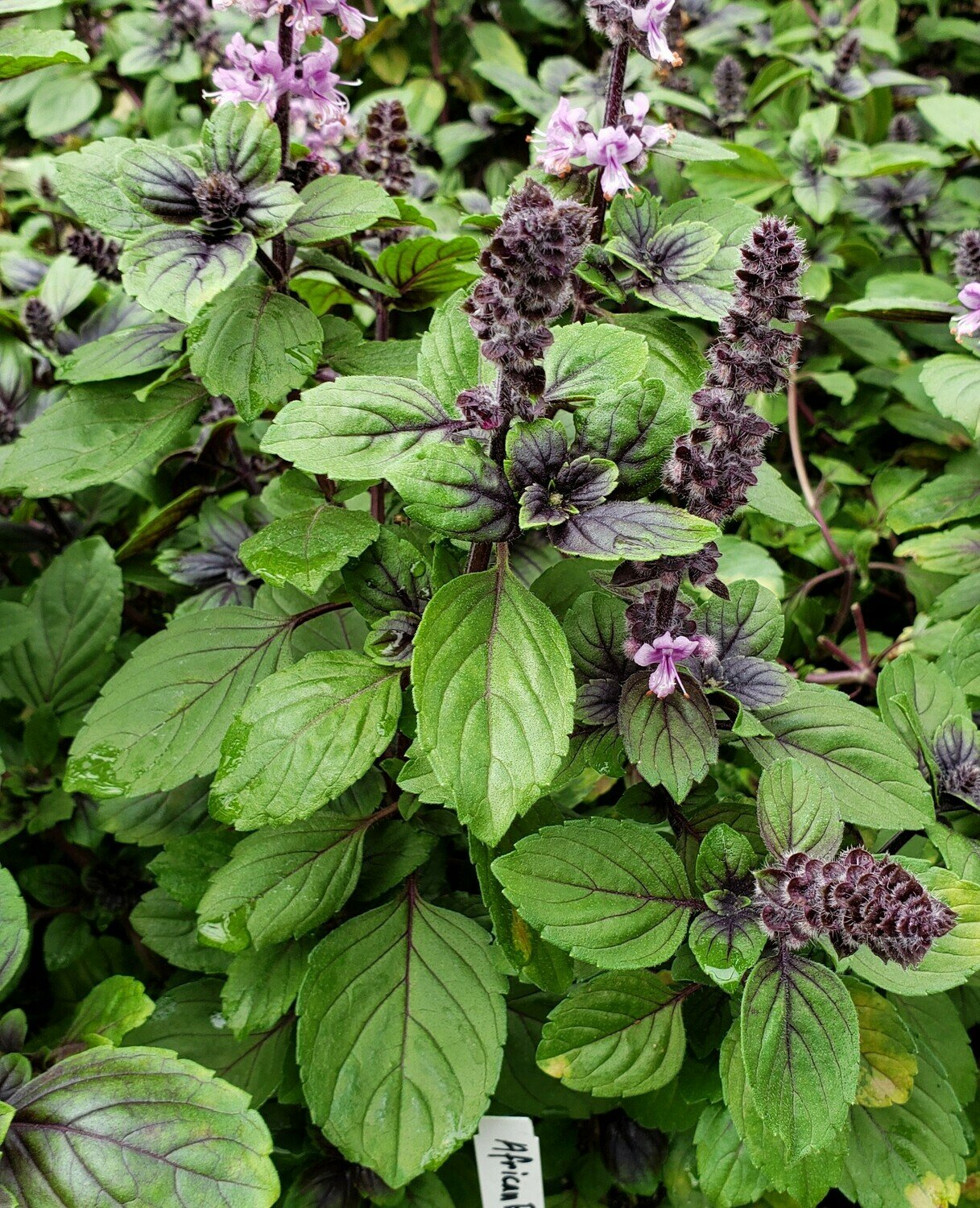
Basil, African Blue (tender perennial)
African Blue Basil thrives in rich and well-draining soil, with a pH that ranges from slightly acidic to slightly alkaline. You can use any regular soilless potting mix to grow this herb. Adding compost or plenty of organic matter to the growing medium at the time of planting will help it thrive. A pH of 6.0 to 7.5 is best for it.

Agriculture Closeup of an African Blue Basil plant in a greenhouse at a local family produce
African blue basil is a hybrid plant in the lamiaceae family made by crossing East African camphor basil and a varietal of purple sweet basil called Dark Opal Basil. Its Latin name is Ocimum kilimandscharicum × basilicum 'Dark Opal'. African blue basil plants exude a strong camphor scent.
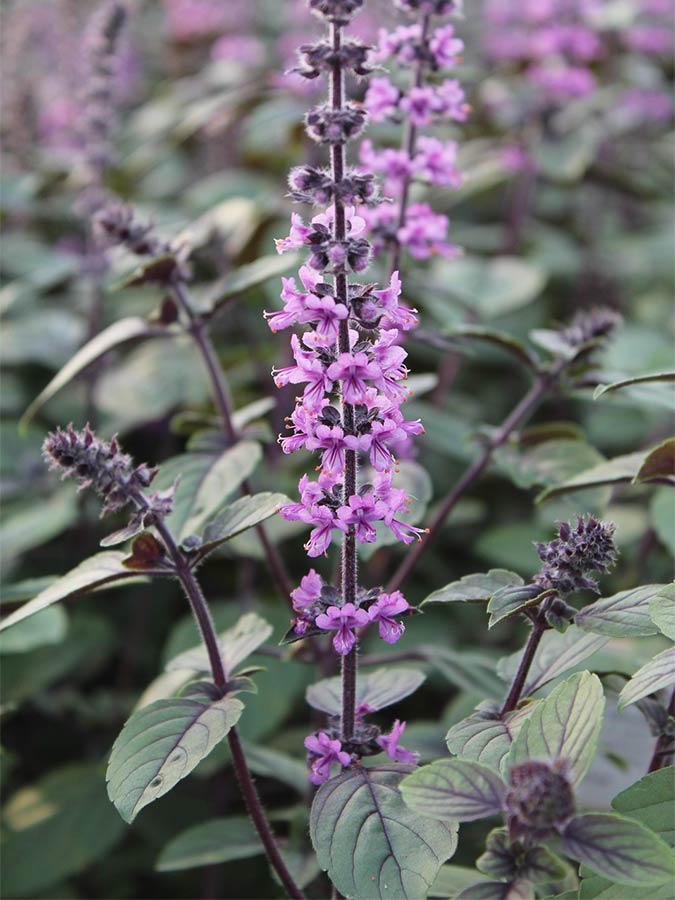
Basilikum African Blue Kräuter Lädle
African blue basil (Ocimum kilimandscharicum × basilicum 'Dark Opal') is a unique and visually striking cultivar of basil. It is a hybrid variety that resulted from a cross between two basil species: Ocimum kilimandscharicum (Camphor basil) and Ocimum basilicum (Sweet basil).
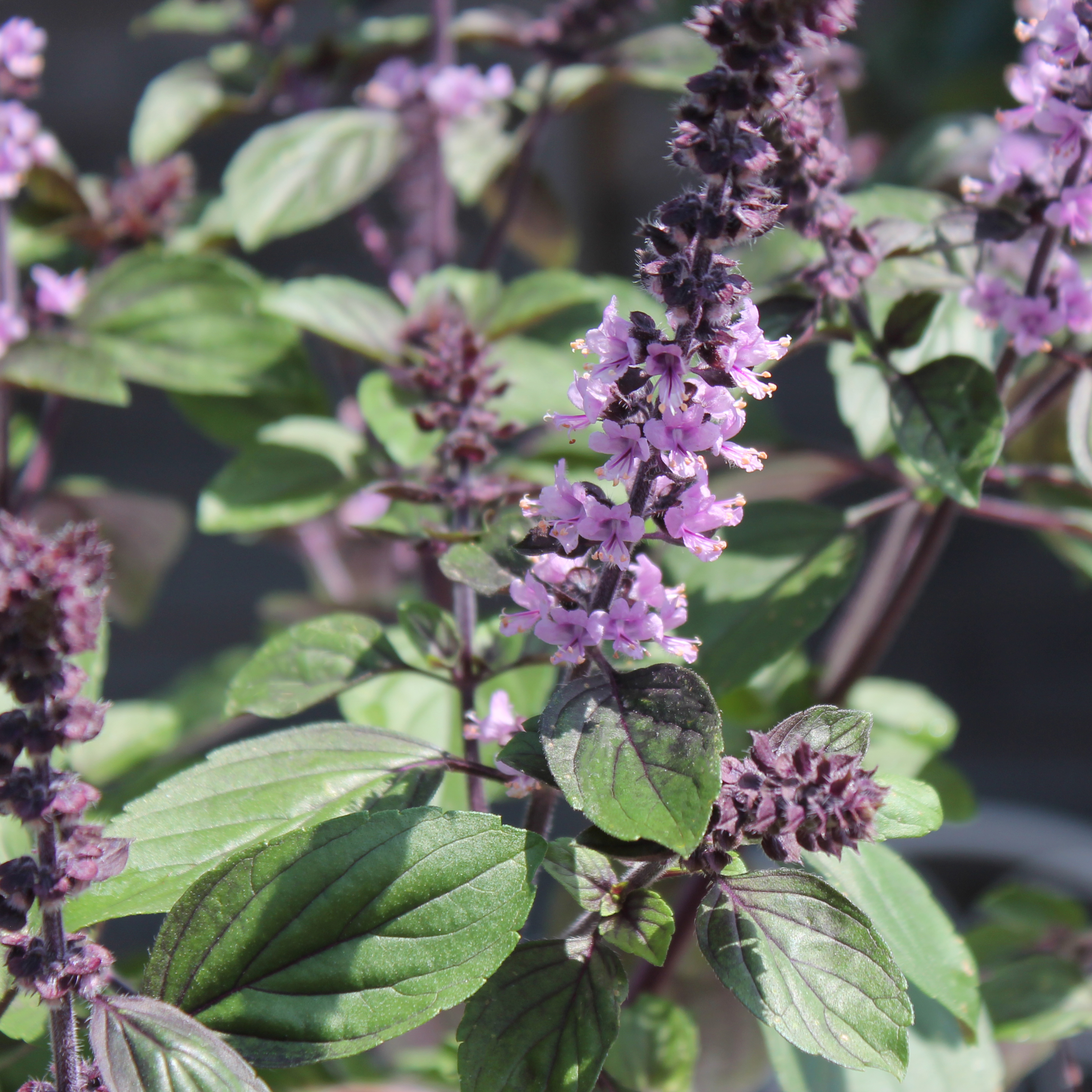
Deaflora Basilikum African Blue
Strauchbasilikum 'African Blue' ist eine Sorte/Zuchtform von Basilikum mit anderen Eigenschaften. Zum ökologischen Nutzen liegen keine Daten vor - gehe davon aus, dass der Wert geringer ist. Orientiere dich deshalb grob an der Wildform. Daten der Wildform ( Basilikum ): ℹ️ Sonstiges ⤵️ Klassifizierung Was ist das Strauchbasilikum 'African Blue'?

Basil 'African Blue' Buy Online at Annie's Annuals
African blue basil is a perennial hybrid basil that was created by crossing two basil species. The first species is Ocimum kilimandscharicum, which is also known as 'camphor basil.' While the second species is Ocimum basilicum; this is the same species as the common sweet basil, but it is a different cultivar known as 'dark opal.'

2017 Basilikum African Blue Mahler Hof
Description Perennial African Blue Basil was first discovered in the early 1980s as a natural hybrid between the East African Camphor basil (Ocimum kilimandscharicum) and a garden basil variety known as Sweet basil Dark Opal (Basilicum Dark Opal).
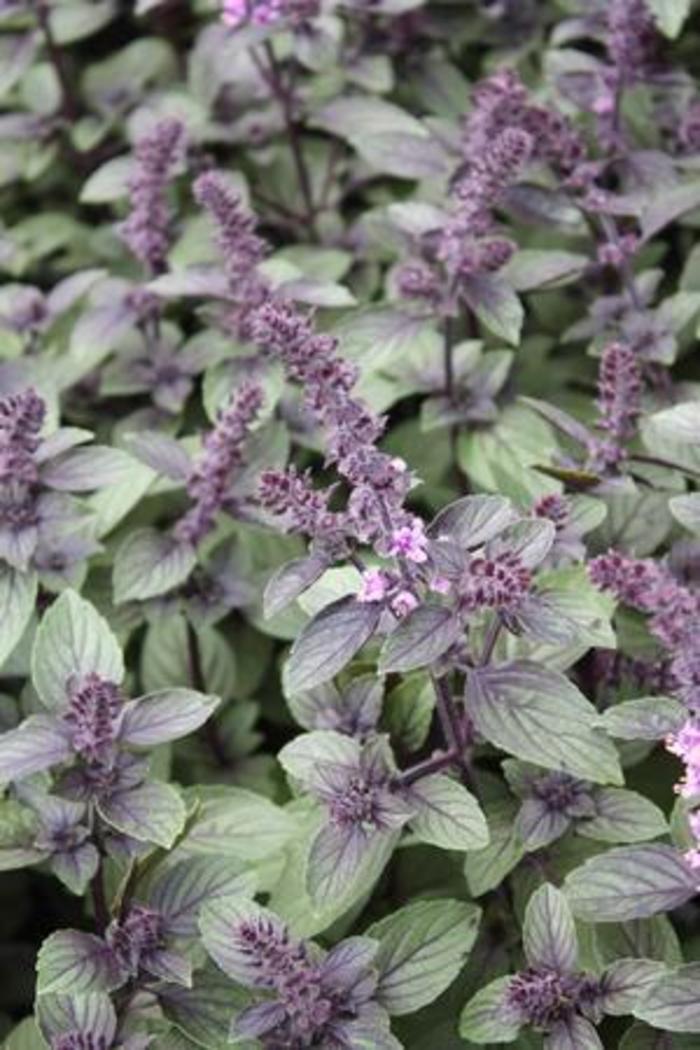
Ocimum basilicum 'African Blue' Basil Ebert's Greenhouse
African Blue basil (Ocimum kilimandscharicum x basilicum "Dark Opal") is a sterile hybrid of an East African camphor basil and a standard garden variety called Dark Opal. Propagated only through cuttings, African Blue survived an unusually cold and wet winter outside in my zone 10b (Sunset zone 24).

Basilikum African Blue Ocimum Kilimandscharicum African Blue günstig kaufen
Ideal Climate for Growing African Blue Basil. The best growing climate for African blue basil is subtropical to tropical and the plant enjoys some humidity. So if you live in a climate with temps between 68-95°F (20-35°C), then African blue basil will thrive. Winter temperature dipping below 40°F (4°C) is getting too cold for African blue.
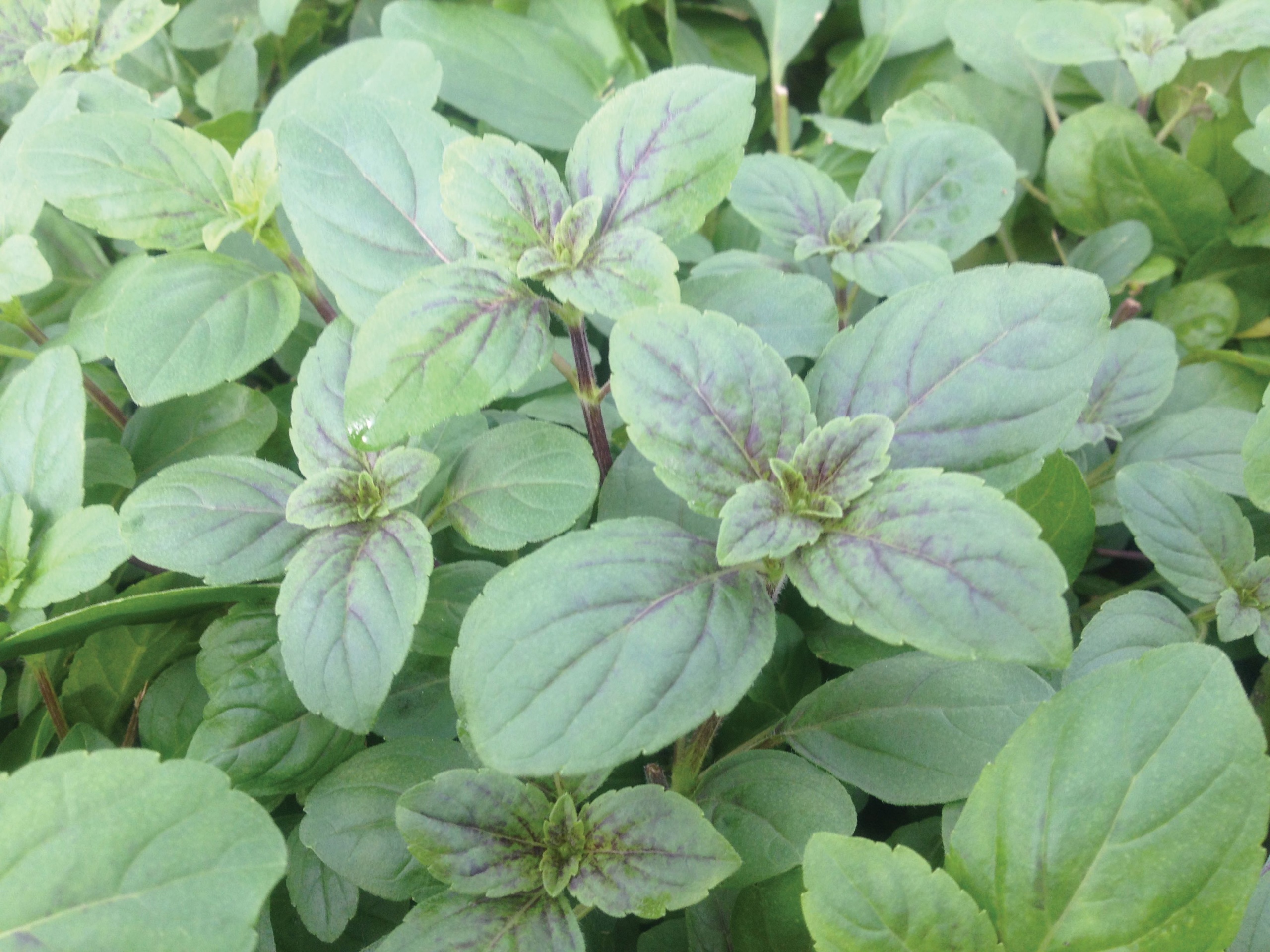
Basilikum African Blue Gardenhouse.sk
Afrikanischer Strauchbasilikum „African Blue". Wuchs : strauchartig, buschig, gut verzweigend ca. 60-80 cm hoch. Blüht den ganze Sommer durch, beliebte Bienenpflanze! Düngung: je nach Ernte und Wachstum, im Sommer max. 2x pro Monat. Überwinterung: 8-12°C, aber auch bei Temperaturen von +18 bis max. +20°C auf der Fensterbank möglich.

african blue basil uses newfordtransitvan
African blue basil is a sterile hybrid, resulting from a cross between Ocimum kilimandscharicum, a camphor basil native to East Africa, and a cultivar of Ocimum basilicum, 'Dark Opal'.

African blue basil
History: African blue basil was first seen in 1983 when Peter Borchard, owner of Companion Plants in Athens, Ohio, noticed it growing in the path between beds of the two presumed parents. The green-leaved East African basil parent grows to 6 feet tall in his garden. 'Dark Opal' is a small plant with deep purple leaves and a typical Italian basil flavor.
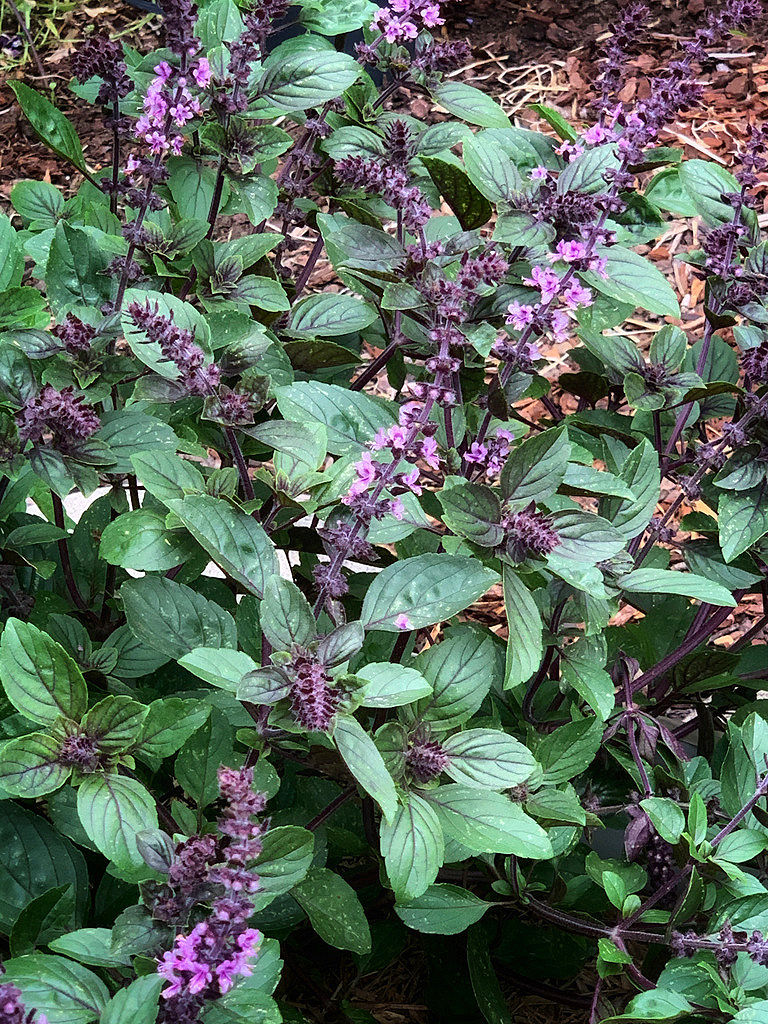
African Blue Basil Growing Guide The Gourmantic Garden
Botanically speaking, African blue basil belongs to the Lamiaceae family and is a cross between basil ( Ocimum basilicum) and camphor basil ( Ocimumkilimandscharicum ), an African basil plant. With consistent warmth and sun, the plant's stem becomes woody with age and grows up to 1m high and very bushy.
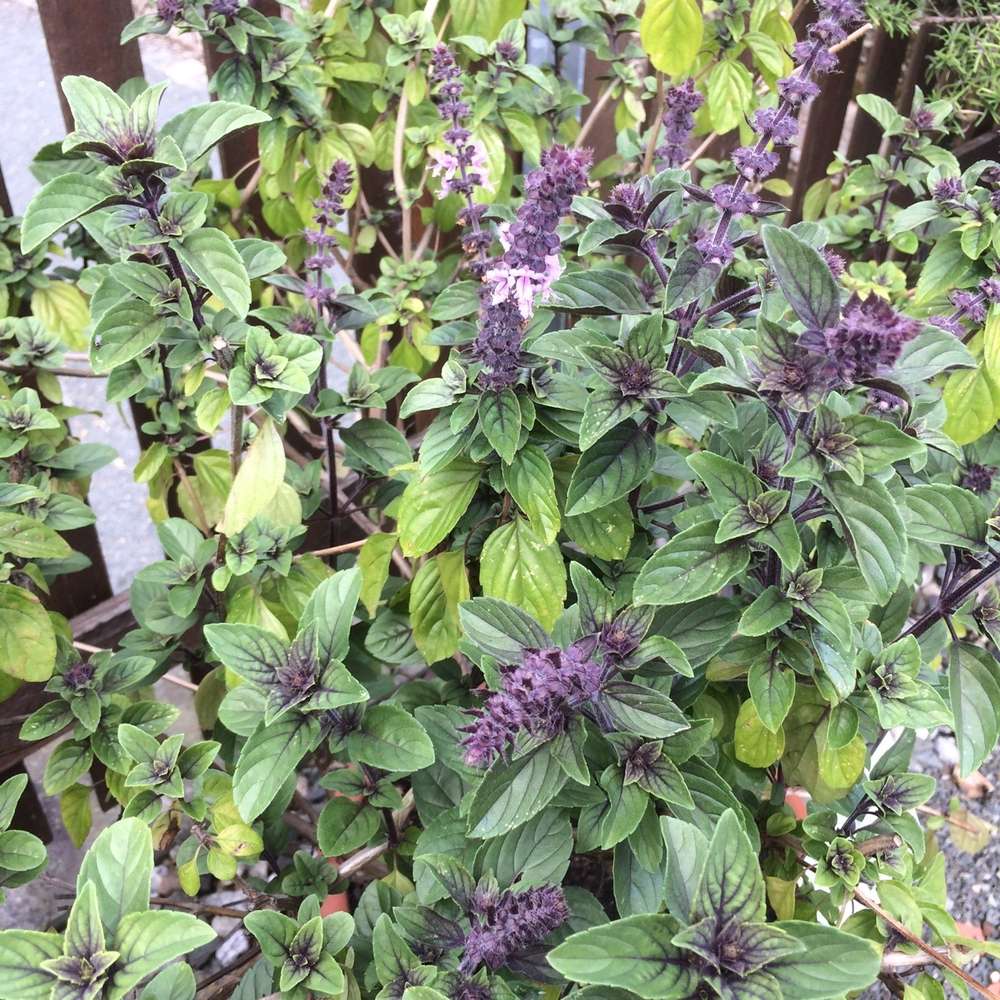
Basilikum African Blue purpurgrüne Blätter
Also known as clove basil and African basil, the African blue basil plant ( Ocimum gratissimum) is a perennial shrub grown for a hedge or for medicinal and culinary uses. Traditionally, and commercially today, African basil is grown for its oils, which are used in flavorings and insect repellant. About African Basil Plants
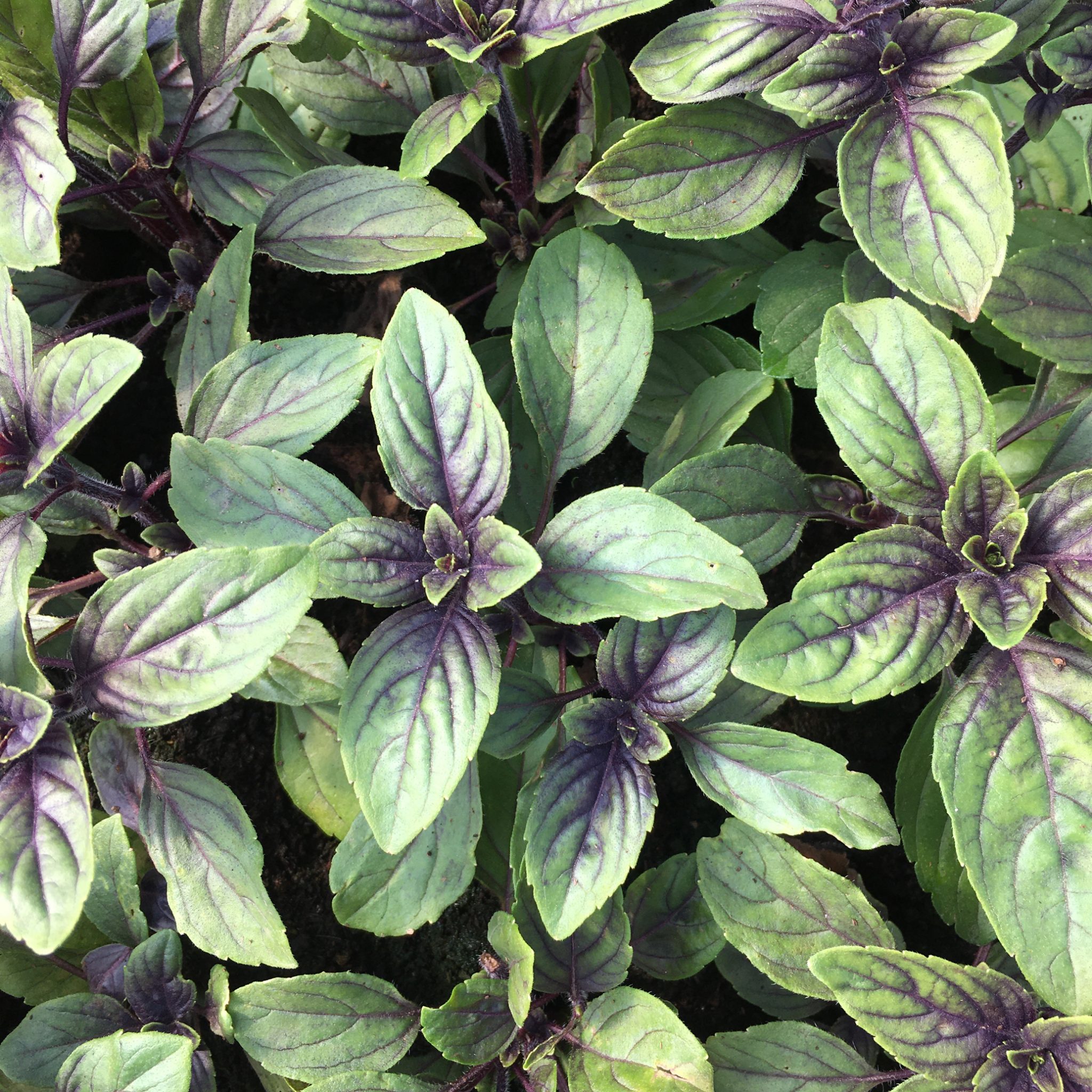
African Blue Basil Herb Plug Plants Rocket Gardens
Basils do not dry well, but leaves and flowers can be pureed with olive oil and frozen for winter use. Use about 3 cups leaves to 1/3 cup olive oil and store flat in small resealable bags. African Blue Basil is one of the six plants chosen to be in our Edible Flower Herb Garden Six Pack. This plant is often available in plug trays.
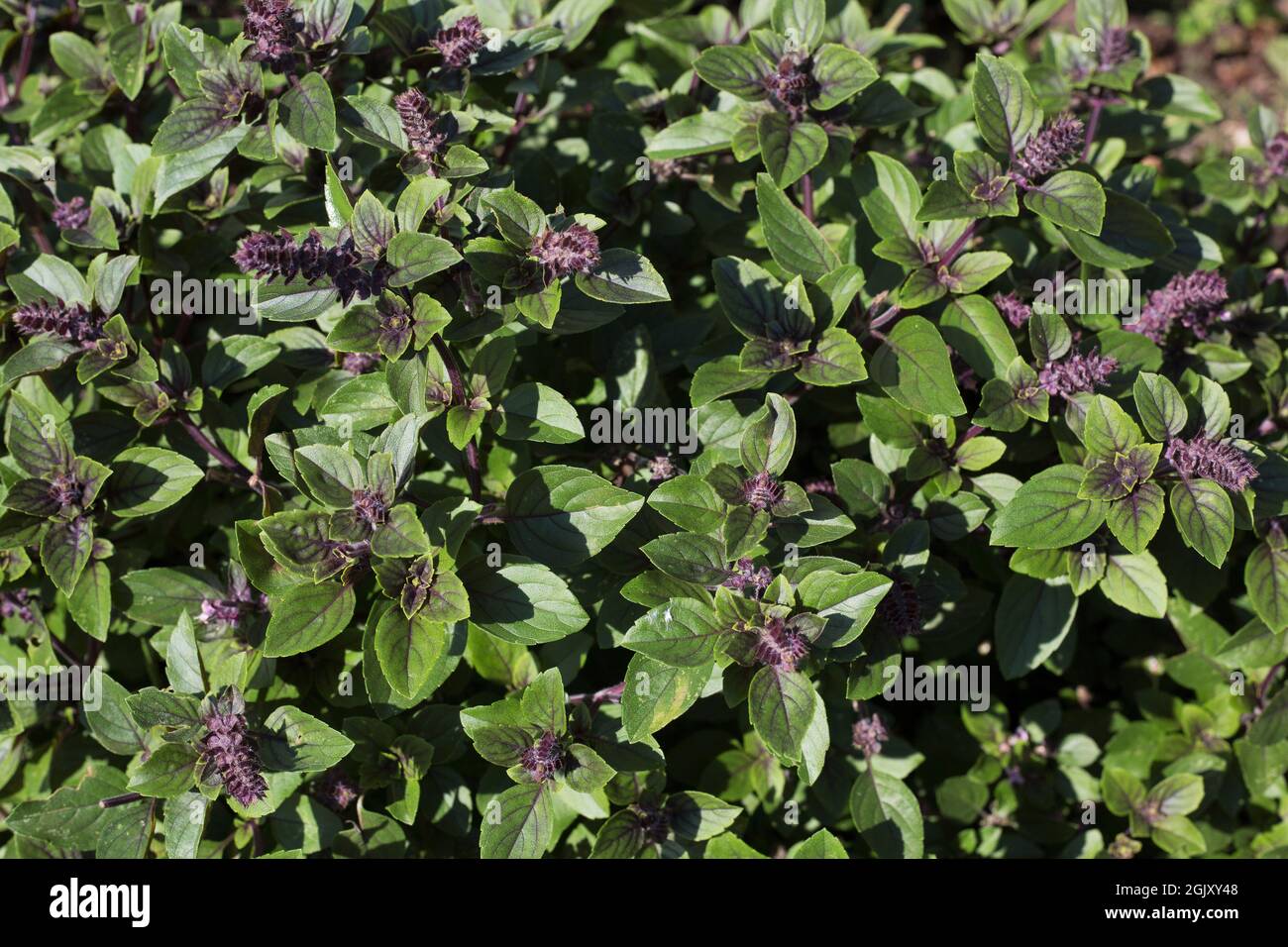
Ocimum basilicum 'African Blue' Basilikum Stockfotografie Alamy
Browse 84 african blue basilicum photos and images available, or start a new search to explore more photos and images. Showing results for african blue basilicum. Search instead for african blue basilikum?
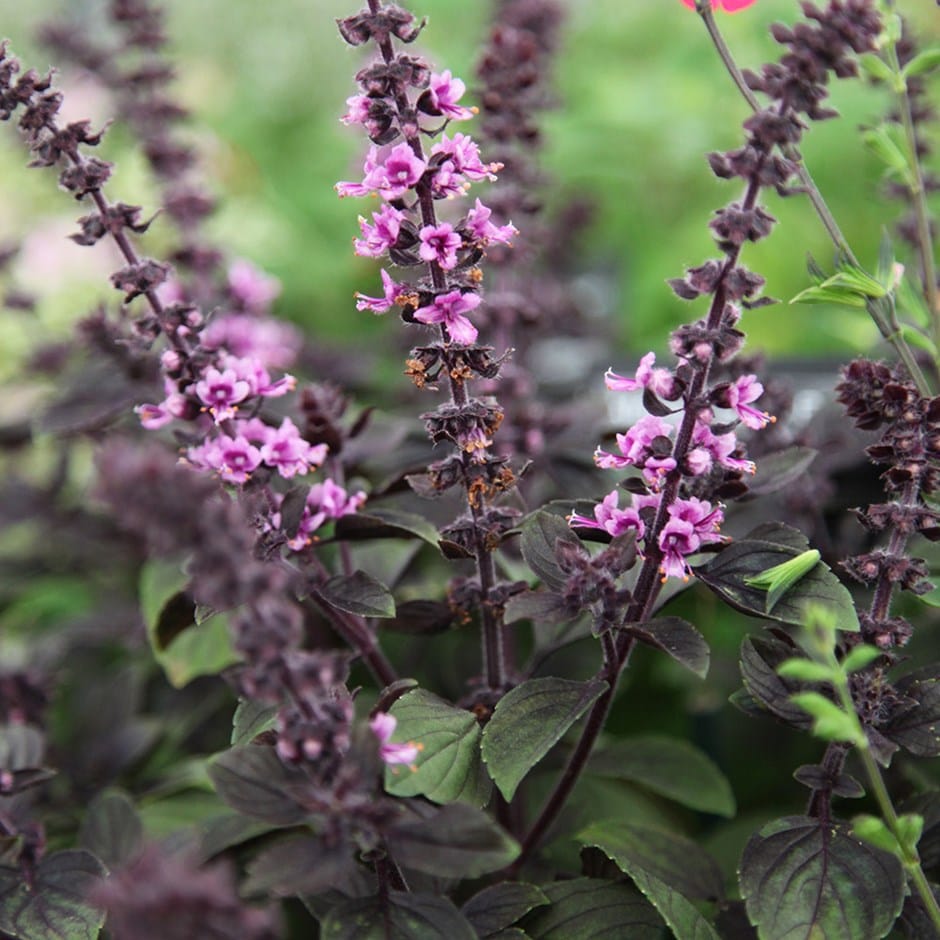
Buy basil / Ocimum African Blue Ocimum African Blue £6.99 Delivery by Crocus
African blue basil is a sterile, hybrid, edible herb in the Lamiaceae (mint) family. As noted in its scientific name, it is a cross between Ocimum kilimandscharicum, a camphor basil native to East Africa, and a cultivar of basilicum, 'Dark Opal', also native to Africa and to Southern Asia.